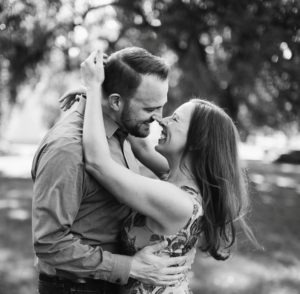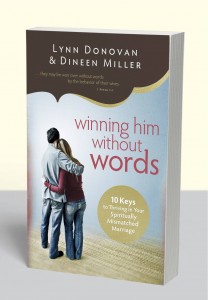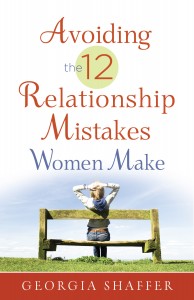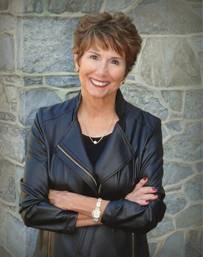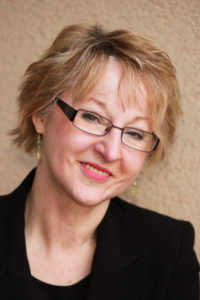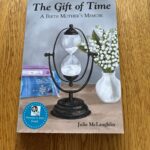Years ago when my marriage began to fall apart, I felt lost. I didn’t know where to turn for help. It was an uncharted path for me as I know it is for many of you.
I went to Christian bookstores looking for books to provide guidance. I made an appointment with a pastor at church. I listened to Christian radio a little more attentively than usual. I was desperate for answers. But I found few resources that could really help.
Now that I’ve traversed this difficult road, found healing in my own marriage, and become involved in ministry to help heal hurting marriages, I have happily found resources that can help hurting marriages in crisis. Conferences, retreats, courses, intensives, books and Internet sites are available to those looking for help. Below are sixteen resources available to help in the healing of hurting marriages.
Programs You Can Attend that Help Hurting Marriages
A good marriage program can offer a big dose of healing in a relatively short period of time. Many marriages have turned around, found healing, and become reconciled because of the following programs. The first three programs listed below are peer-lead by people who have experienced and overcome crisis in their own marriages.
- Marriage 911 is a twelve or thirteen week international program founded in Modesto, California in 1990 by Joe and Michelle Williams, now helping hurting marriages in over sixty cities throughout the U.S., as well as Canada, Australia and the Virgin Islands. Unlike what is common in other marriage programs, Marriage 911 can bring healing to a marriage even when only one spouse attends. Because men and women participate separately, each spouse learns to focus on God and what God is personally telling them to do to become healthy individuals and have a healthy marriage. Many families are together today because of the commitment of just one spouse’s participation. My husband and I have personally been leading this class in our Central Florida community for 14 years, and have seen many marriages healed. Because of this program, countless numbers of couples around the country have survived crisis in their marriages to experience the joy of renewal and wholeness in their families. For more information: https://marriage911godsway.com/
- Retrouvaille (French for rediscovery) is an international program that begins with a weekend retreat where couples learn communication tools that help them connect at a heart level. It’s a transformative weekend for couples whose marriages are in crisis and can completely bring renewal to a marriage regardless of how broken it is when you attend. My husband and I personally experienced this transformation when our marriage was in the first stages of recovery from our three-year separation. We were still separated but finally decided we wanted help to put our marriage back together. Retrouvaille enabled us to do that. Retrouvaille is usually sponsored through the Catholic Church and can be found throughout the United States as well as other countries around the world. You can see more at: https://www.helpourmarriage.org/
- The Marriage Helper Workshop Retreat considers itself to be the emergency room for marriages in trouble. It is a twenty-year-old program that boasts a 77% success rate after having helped thousands of couples. During the three-day workshop, leaders help couples tackle real-life situations, addressing principles that people identify with, whether or not one or both of them actually want to save the marriage. The workshop offers hands-on help by those who have experienced and overcome a crisis in their own marriage to rescue relationships and help couples grow deeper in intimacy and passion. No one is judged for what lead to the marriage crisis. The workshop takes place in Nashville, Tennessee. For more information: https://marriagehelper.com/
Getting The Love You Want Workshop for Couples –This workshop based on Imago Relationship Therapy developed by Harville Hendrix, Ph.D and Helen LaKelly Hunt, Ph.D, teaches that relationship power-struggles are an opportunity for healing and growth and can establish a deeper connection between partners. In this workshop, certified therapists and facilitators help couples break destructive patterns of communication, find emotional healing, and learn new conflict resolution strategies. Through Imago, couples can develop increased compassion and understanding of one another and renew the passion and pleasure in the relationship. Imago workshops can be found across the country. https://imagorelationshipswork.com/find-a-professional/workshops
Marriage Intensives Specifically Designed to Help Hurting Marriages
A marriage intensive involves either a weekend or several days of intense professional marriage counseling with a small group of couples and can be extremely effective in helping a couple identify and resolve core issues hurting their marriage. The following ones are highly recommended.
- A marriage intensive through Focus on the Family’s Hope Restored program offers help from trained professional counselors in a picturesque retreat center in one of three locations, including Missouri, Michigan, and Georgia. http://hoperestored.com.
- Hope and Healing intensives are for those recovering from adultery in their marriage. Mona and Gary Shriver, authors of Unfaithful, lead the intensives, which usually take place in Northern California. https://www.hopeandhealing.us/
Books for Hurting Marriages – In Depth Help You Can Review Again and Again
The good thing about a book is that you can keep it with you and read it again and again. You can underline your favorite parts, share it with your spouse or others, and use it as a launch pad for discussion.
- Broken Heart on Hold, Surviving Separation by Linda W. Rooks, brings emotional and spiritual healing to breaking hearts so readers can focus on the next step and make wise decisions. My own story of my husband’s and my three-year separation is woven through the short chapters to heal their emotional pain, lift the reader up to God and give them hope for their future.
- Award winning Fighting for Your Marriage while Separated, A Practical Guide for the Brokenhearted, by Linda W. Rooks, walks with the separated person step-by-step from the first day of a break-up to eventual healing, guiding them toward reconciliation, but preparing them with God’s undergirding love for whatever the outcome. Practical insights, breakthrough strategies, biblical wisdom, and real life stories provide a roadmap through the confusion of a separation.
- Yes, Your Marriage Can Be Saved: 12 Truths for Rescuing Your Marriage by Joe and Michelle Williams is written by the creators of the Marriage 911 God’s Way ministry. Against the backdrop of their own separation and reconciliation stories, the book shares numerous insights that help those in troubled marriages look at themselves personally in the context of their marriage and recognize where change needs to happen. An invaluable resource for helping individuals and couples through the tough times in marriage.
- Marriage Off Course: Trusting God in the Desert of Unwanted Separation or Divorce by Clint and Penny Bragg uses the poetry of a desert analogy to offer biblical guidance and practical tools to strengthen the faith of those languishing in the desert of separation or divorce. The Braggs also provide an insightful perspective into the mind of a prodigal spouse and the husband she left behind. Their own experience of an eleven-year divorce that resulted in reconciliation, plus many stories from others, brings welcome encouragement while walking with the reader on a path toward healing.
- The DNA of Relationships for Couples by Greg Smalley and Robert S. Paul uses a fictionalized account of an actual marriage intensive to unravel a variety of untenable marital situations and unveil simple principles of hope and healing. Written like a novel, the book puts you in the heads of four couples at a four-day marriage intensive headed for divorce. As they wrestle with their problems day and night, counselors reveal insights that are gradually able to untie the messy knots of their relationships.
- I Do Again: How We Found a Second chance at our Marriage–and You Can Too, by Cheryl and Jeff Scruggs, reveals the hidden secrets that can slowly destroy a marriage and the spiritual awakening that can open the way to healing. Written like a romance novel, I Do Again is a riveting story about the marriage, divorce, and remarriage of Cheryl and Jeff Scruggs. The book offers renewed hope for even the most troubled marriages and reveals why the rewards of restoration are well worth the wait.
- Unfaithful by Gary and Mona Shriver is a must-read for any couple dealing with the aftermath of unfaithfulness in their marriage. The Shrivers, who experienced unfaithfulness in their own relationship, walk the road of recovery with readers as they take turns sharing their story of healing and the necessary steps that brought them back together. The wisdom and recommended tools are invaluable for a couple recovering from an affair.
Help on the Internet for Hurting Marriages
The Internet offers opportunities for regular encouragement and community with others in similar situations. Hope and help are only a click away and always available.
- Heart Talk – Finding Hope in Unexpected Places – This is my blog for those who need weekly encouragement to help them walk through a difficult time in life or find hope for their marriage. http://lindarooks.com
- Spiritually Unequal Marriage – A community of hope and encouragement offering a variety of resources for those married to unbelievers http://.spirituallyunequalmarriage.com
- Marriage Builders – Valuable marriage advice from Dr. Willard F. Harley on a variety of subjects through Articles, Q & A Columns, Discussion forums, radio shows and more. https://www.marriagebuilders.com/
If your marriage is hurting, there is help even if your spouse is unwilling to try. Decide today where you plan to start. Hope is just around the corner.
Fighting for Your Marriage while Separated offers practical guidance through a separation.

